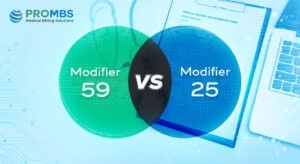Ever felt the world spinning around you? ICD-10 Code R42 might just hold the key to your diagnosis.
Introduction
ICD-10 Code R42, commonly referred to as the medical code for dizziness and giddiness, plays a critical role in the healthcare system. This code is essential for accurately diagnosing and documenting patient symptoms, ensuring proper treatment and billing processes. In this blog, we’ll delve deep into the intricacies of ICD-10 Code R42, covering its origin, usage, and significance in various medical contexts.
What is ICD-10 Code R42?
ICD-10 Code R42 stands for “Dizziness and Giddiness.” This code is used to document instances where patients experience sensations of unsteadiness, faintness, or a spinning sensation. Understanding the nuances of this code is vital for healthcare providers to ensure accurate diagnoses and effective treatment plans.
The Origin of Code R42
The International Classification of Diseases, Tenth Revision (ICD-10), developed by the World Health Organization (WHO), serves as the global standard for coding health conditions. Code R42 falls under Chapter XVIII, which includes symptoms, signs, and abnormal clinical and laboratory findings that are not classified elsewhere. This systematization allows healthcare professionals worldwide to communicate conditions uniformly.
What Does R42 Code Mean?
The R42 code is utilized to identify patients experiencing dizziness. Dizziness can manifest due to a myriad of reasons, including vestibular disorders, cardiovascular issues, neurological conditions, and even psychological factors. By using this specific code, healthcare providers can ensure that the symptom is accurately documented, facilitating appropriate diagnostic testing and treatment strategies.
Benefits of Understanding Code R42
Grasping the significance of ICD-10 Code R42 offers several benefits:
- Improved Patient Care: Accurate identification and documentation of dizziness enable healthcare providers to delve deeper into potential underlying causes, leading to better patient outcomes.
- Efficient Billing: Proper use of the R42 code ensures precise medical billing, reducing claim denials and expediting reimbursements.
- Enhanced Data Collection: Utilizing standardized codes like R42 aids in comprehensive data collection and analysis, contributing to improved healthcare research and policy-making.
How to Use Code R42 Effectively?
To maximize the benefits of ICD-10 Code R42, healthcare providers should:
- Conduct Thorough Assessments: Dizziness can result from numerous conditions. A comprehensive patient history and physical examination are crucial for accurate diagnosis.
- Document Precisely: Ensure that all instances of dizziness are meticulously documented using the R42 code. This precision aids in effective treatment planning and billing.
- Stay Updated: Healthcare professionals should stay informed about any updates or changes to the ICD-10 system to maintain accuracy in coding.
R42 ICD-10 in Mental Health:
Dizziness can also be linked to mental health issues such as anxiety and depression. The ICD-10 R42 mental health code helps healthcare providers address dizziness related to psychological conditions, ensuring comprehensive patient care.
What is Diagnosis Code R42?
The diagnosis code R42 specifically pertains to dizziness and giddiness. This code is used when the primary complaint from the patient is dizziness, and it must be distinguished from other related symptoms like vertigo (ICD-10 Code H81) or syncope (ICD-10 Code R55). Accurate usage of the diagnosis code R42 ensures clarity in medical records and facilitates appropriate treatment pathways.
R42 Diagnosis Code Description:
The description for ICD-10 Code R42 is succinct: “Dizziness and Giddiness.” This encompasses any non-specific sensations of dizziness or unsteadiness that a patient might report. Given the broad nature of this symptom, it’s essential for healthcare providers to delve deeper into the patient’s history and accompanying symptoms to pinpoint the exact cause and provide effective treatment.
How to Effectively Implement ICD-10 Code R42?
Implementing ICD-10 Code R42 in clinical practice involves several key steps:
- Training and Education: Ensure that all healthcare staff are well-versed in the proper use of ICD-10 codes, including R42.
- System Integration: Integrate the ICD-10 coding system seamlessly into electronic health records (EHR) to facilitate easy and accurate coding.
- Regular Audits: Conduct regular audits of patient records to ensure that the R42 code is being used correctly and consistently.
Conclusion
Understanding and utilizing ICD-10 Code R42 effectively is vital for both patient care and medical billing. By ensuring accurate documentation and coding of dizziness symptoms, healthcare providers can enhance patient outcomes and streamline billing processes. Choosing a reliable medical billing partner like PROMBS can further ease this process, ensuring that your practice runs smoothly and efficiently.
By staying informed and adopting best practices, healthcare providers can leverage the benefits of ICD-10 coding to deliver superior care and achieve financial stability. Whether you’re dealing with dizziness related to physical or mental health issues, using the R42 code accurately will always be a step towards better healthcare management.



















